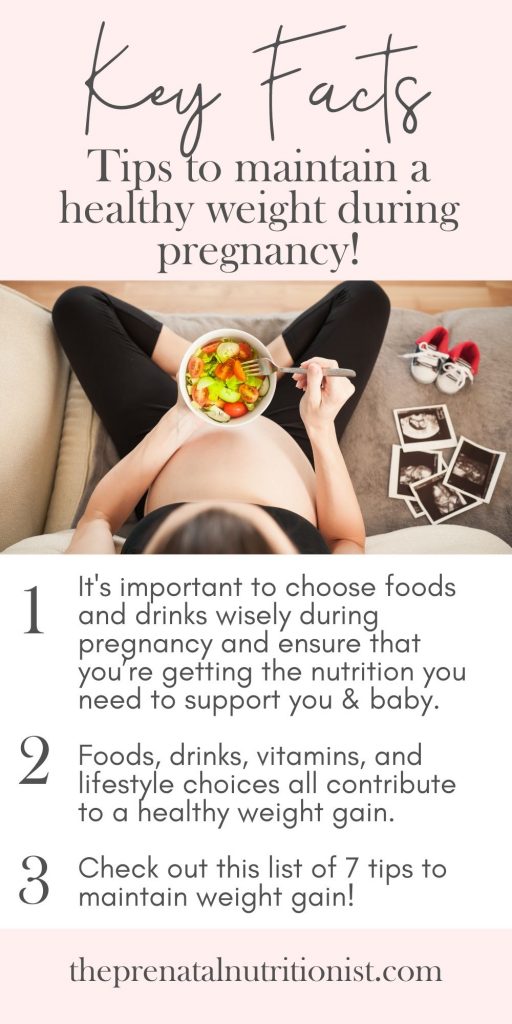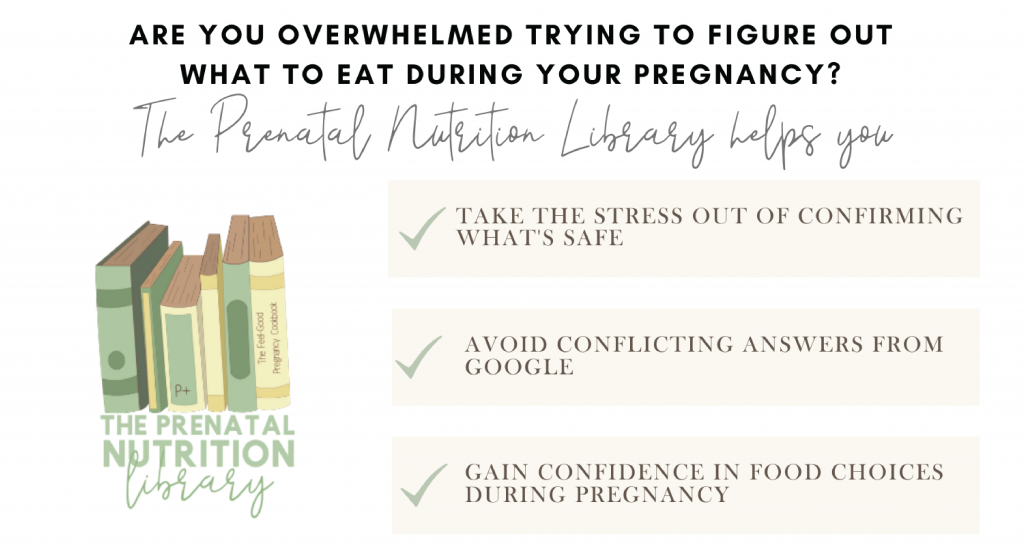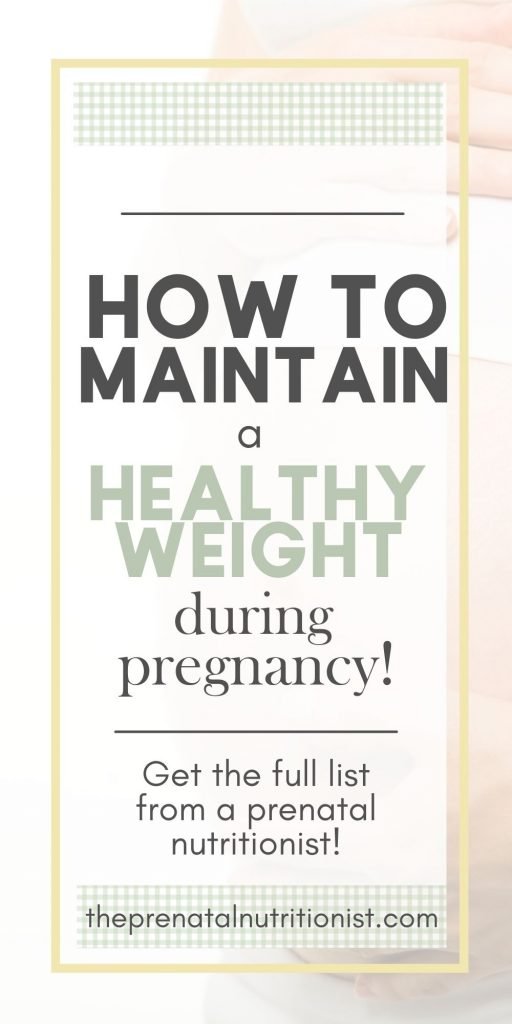
As most expecting mothers know, maintaining a healthy diet is essential during pregnancy for various reasons. Reasons that extend to both you and your baby.
Maintaining a healthy diet during pregnancy is essential to support your baby’s proper growth and development and ensure healthy weight gain. The foods and drinks that mothers consume supply the baby with nutrients too. And eating healthy will help set new mothers like you up for good health during and after your pregnancy. It’s also important to note that maintaining a balanced diet during pregnancy is the one way to reduce and manage common pregnancy symptoms, such as nausea, muscle cramps, and fatigue.
For these reasons and more, it’s essential to choose foods and drinks wisely during pregnancy and ensure you get the nutrition you need to support yourself and your baby. In light of this, we’re devoting a whole blog to how to maintain a healthy diet during pregnancy!
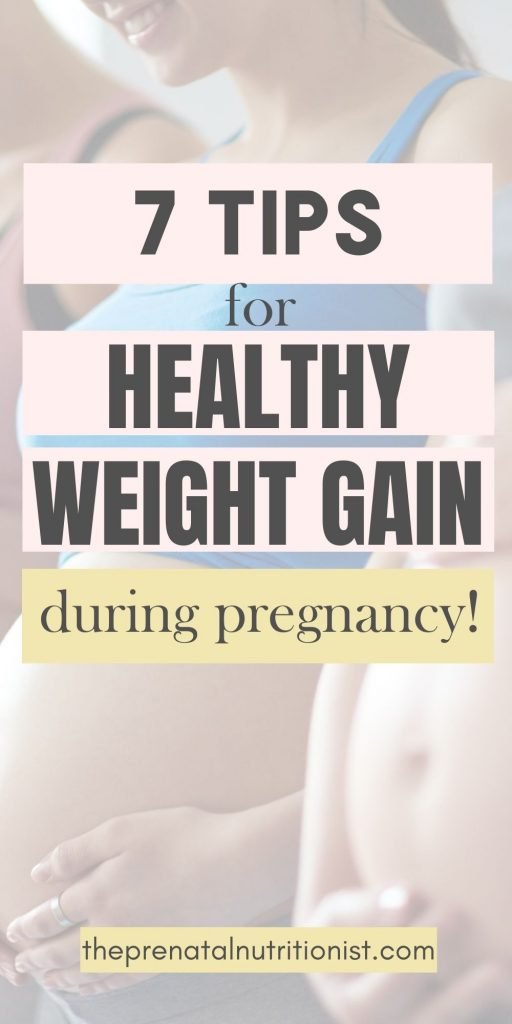
How To Maintain A Healthy Diet During Pregnancy
What to eat
Throughout pregnancy, what you eat is important. Certain foods are essential to ensure you get all the vitamins, minerals, and nutrients required for a healthy pregnancy. These include, but are not limited to, folate, protein, fat, fiber, calcium, Vitamins A, C, and D, potassium, iron, and iodine. Including a variety of food groups, like the ones listed below, can help to ensure a healthy feel-good pregnancy that meets nutrient needs.
Vegetables
When it comes to getting a variety of vitamins and minerals, vegetables are the first foods that come to mind. Vegetable nutrients will vary based on the choice, but fiber, vitamins, and minerals are plentiful in veggies. Some examples of great vegetable choices to consume during pregnancy include:
- Carrots
- Dark leafy greens
- Cucumber
- Zucchini
- Sweet potatoes
- Bell peppers
- Broccoli
- Asparagus
Fruits
Fruits are also a rich source of vitamins and minerals for a healthy pregnancy. You will get vitamin C, fiber, folate, potassium, and magnesium, depending on the fruit choice. On top of the vitamins and minerals, fruits are also an excellent source of water to help keep expecting mothers hydrated. The best fruits are the ones you enjoy eating. Examples of great fruit choices to consume during pregnancy include:
- Strawberries
- Prunes
- Oranges
- Raspberries
- Kiwi
- Bananas
- Apples
- Grapefruit
- Blackberries
Dairy
If tolerated, dairy is a great food group to include during pregnancy because it is a source of many essential nutrients, including calcium, vitamin D, iodine, and protein. Calcium is critical during gestation as it is vital for forming a baby’s bones. It’s also important to keep a mother’s bones strong as her body undergoes many pregnancy-related changes.
Dairy is not necessary to meet your nutrient needs, but consuming 1-2 high calcium foods is recommended if you avoid dairy. Example sources of dairy include:
- Whole milk
- Full-fat Greek yogurt
- Cheeses (Cheddar, Parmesan, etc.)
- Cottage cheese
- Kefir
High Fiber Foods
Whole grains, beans, lentils, and legumes are a great source of fiber and other nutrients like folate and iron. Folate is one of the most important nutrients during pregnancy because it directly supports the proper growth and development of your baby’s brain and eyes and is involved in preventing neural tube defects. Fiber helps to promote regularity and reduce constipation. It’s also an essential nutrient in reducing preeclampsia and gestational diabetes risk.
Pregnancy-safe grains and legumes include, but are not limited to:
- Whole grain or sprouted bread
- Oatmeal
- Black beans
- Quinoa
- Lentils
Protein
And last but certainly not least, we have protein. Consuming plenty of protein is essential during pregnancy for many reasons. Protein is involved in every process in your and your developing baby’s body. It helps keep moms full and energized all day; it is essential for the proper development of the baby’s tissues and organs and is quite literally the building block of your baby.
Good sources of protein during pregnancy include:
- Beans and lentils
- Lamb and pork
- Beef
- Nuts and seeds
- Poultry
- Low mercury seafood (salmon, trout, shrimp, sardines, etc.)
How much to eat
Calorie needs are individualized no matter which stage of life you are in, including the prenatal period. Your calorie needs are calculated based on several factors such as age, gender, height, weight, physical activity level, health goals, and existing health conditions.
The CDC recommends eating an extra 300 calories per day in the second trimester and an additional 400 calories per day in the third trimester of pregnancy. These are the current recommendations from the CDC; however, an individualized approach to calculating calorie needs during pregnancy is best. Some people may not need to increase their calorie intake until the third trimester or at all.
Focus on choosing healthy foods filled with nutrients so you have enough calories to get yourself through the day and help your baby grow. Generally, I like to build a pregnancy plate made up of the following:
- 1/4 protein (eggs, turkey, chicken, etc.)
- 1/4 carbs (quinoa, whole grain bread, fruit, etc.)
- 1/2 non-starchy veggies (cucumbers, carrots, bell peppers, etc.)
- 2-3 servings of healthy fats (avocado, olive oil, nuts, seeds, fatty fish, etc.)
Prenatal Vitamins
Between morning sickness, nausea, and other common pregnancy symptoms, it can be hard to keep down all the nutritious foods we want every day. And, for those who struggle with chronic morning sickness, keeping those nutrient-rich foods in your system can be extra challenging. This is one reason why your prenatal vitamin is important.
In most prenatal vitamins, you will find vitamin A, B, C, D, and E, calcium, iodine, magnesium, potassium, zinc, and others – wow! One of the most important things to look for in a prenatal vitamin is third-party testing to ensure it is a quality product.
However, it’s important to remember that prenatal vitamins are just supplements and should not be relied upon for all your nutrient needs. For more information on prenatal vitamins and how to choose the one that is best for you, check out The Prenatal Nutrition Library. And remember, there is no ONE best prenatal vitamin choice. Everyone has a different health history and starting place nutritionally.
As a side note: Prenatal vitamins are an excellent choice for anyone looking to start a family, even before becoming pregnant. They can boost fertility, help prepare the body for pregnancy, and much more. For more on taking prenatal vitamins before pregnancy, read this article.
What to drink
Water is the most vital liquid to consume during pregnancy. Drinking plenty of water during pregnancy is essential for many reasons. Water helps circulate nutrients throughout the body; it supports bowel regularity, aids digestion, and is an integral component of amniotic fluid around the fetus.
But, water isn’t the only liquid you can consume. Pregnant women can also enjoy some herbal teas, coconut water, milk, alternatives, and electrolyte beverages. Remember, some beverage choices, like juice, contain added sugars and should be consumed in moderation. For more drink options and ideas, check out our blog on the best drinks for early pregnancy.
How much to drink
Pregnant women should consume between 8-12 cups of water each day to stay hydrated and support a healthy pregnancy. But don’t forget that water and fluids can also come from other sources. Other water sources include fruits, vegetables, juices, soups, teas, and smoothies.
What to avoid
There are so many foods that CAN be enjoyed during pregnancy. With that said, there are indeed some foods and drinks that are recommended to avoid during this time. This is either because they are at an increased risk of being contaminated with bacteria or because they have known adverse outcomes for mom and baby. Let’s review a few foods and drinks that should be avoided and why.
Unpasteurized dairy
Dairy products such as whole milk are a great source of essential vitamins and minerals during pregnancy. However, it is recommended to stick with pasteurized dairy products during pregnancy versus raw or unpasteurized choices. Pasteurization helps to reduce the risk of food or beverage contamination with harmful bacteria and other pathogens.
Note that most dairy products, including soft cheeses in the United States, are pasteurized. You may need to ask if you shop at a farmer’s market or a local farm!
Alcohol
Drinking alcohol during pregnancy is a controversial topic globally. However, no amount of alcohol has been proven safe during pregnancy. There are also no benefits to consuming alcohol during pregnancy. Alcohol is not considered a “baby building” nutrient-dense beverage choice.
The Center for Disease Control (CDC) and most other health organizations strongly advise against the consumption of alcohol while pregnant. This recommendation goes for all types of alcohol, including wine, beer, and liquor. We recommend abstaining from alcohol during pregnancy.
High mercury seafood
According to the World Health Organization (WHO), mercury is one of the top ten chemicals of primary public health concern. High mercury levels during pregnancy increase the risk for several poor outcomes, like stillbirth and brain damage. Therefore, it is recommended to avoid high mercury seafood choices. Examples of high mercury seafood choices include shark, swordfish, tilefish, king mackerel, and bigeye tuna.
Pregnant women should not avoid fish altogether, as this has also shown less than optimal outcomes. There are many benefits to incorporating low mercury seafood. Skipjack tuna, salmon, anchovies, sardines, cod, and trout are some examples of low mercury fish choices that are great options for pregnancy.
Handle food safely
The last essential tip for maintaining a healthy diet during pregnancy is to ensure you handle your food safely. This means washing, cleaning, preparing, and storing your food with the proper guidelines in mind. Doing this can help reduce the risk of dangerous bacteria growth that could lead to sickness or, in the most serious of instances, pregnancy complications.
Here, on The Prenatal Nutritionist blog, we list the best food safety tips to help reduce your risk of foodborne illness and ensure you enjoy a happy and healthy pregnancy. Check out these tips to ensure food safety during pregnancy to learn more about how to properly clean, prepare, and store your food!
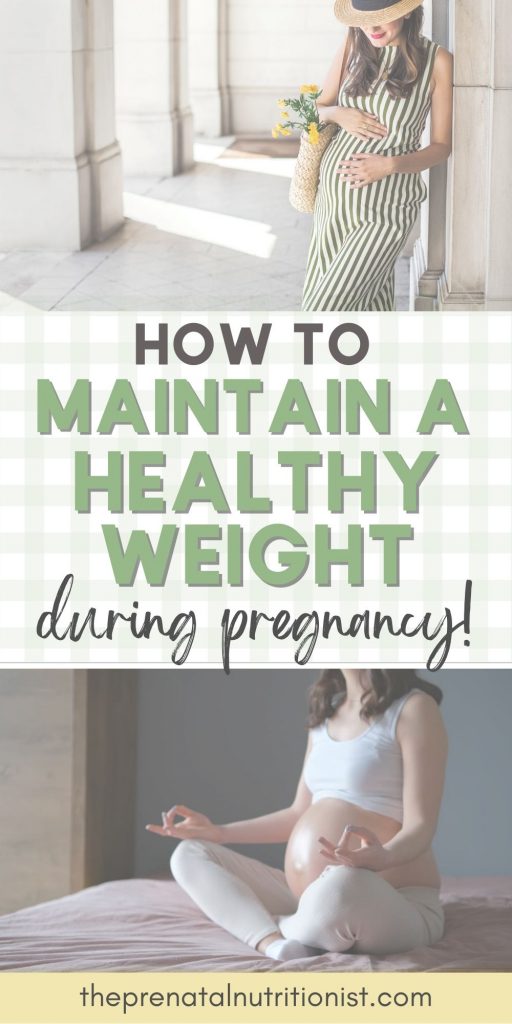
Healthy eating during pregnancy is the first step to ensuring a happy and healthy nine months!
Meeting nutrient needs during pregnancy starts with a well-rounded diet. Use these tips for maintaining a healthy diet during pregnancy to better plan your meals and ensure you’re getting all the micronutrients, vitamins, minerals, and fluids you need to support a growing baby and healthy mom.
Remember that everything you put into your body will also help build and support your baby. Ensuring that you are eating plenty of nutrient-dense foods and maintaining a healthy pregnancy diet has many benefits. For more prenatal nutrition resources, head on over to our blog. There, you will find many pregnancy resources on everything from Healthy Breakfast Ideas for Pregnant Women to Is a Cup of Coffee Safe During Pregnancy.
If you are feeling confused about the “do’s” and don’t’s” of foods during pregnancy, be sure to join The Prenatal Nutrition Library (TPNL). You can even download TPNL app for free to get a sneak peek inside the library today. Until next time, we wish you the best of luck as you navigate your pregnancy journey!
